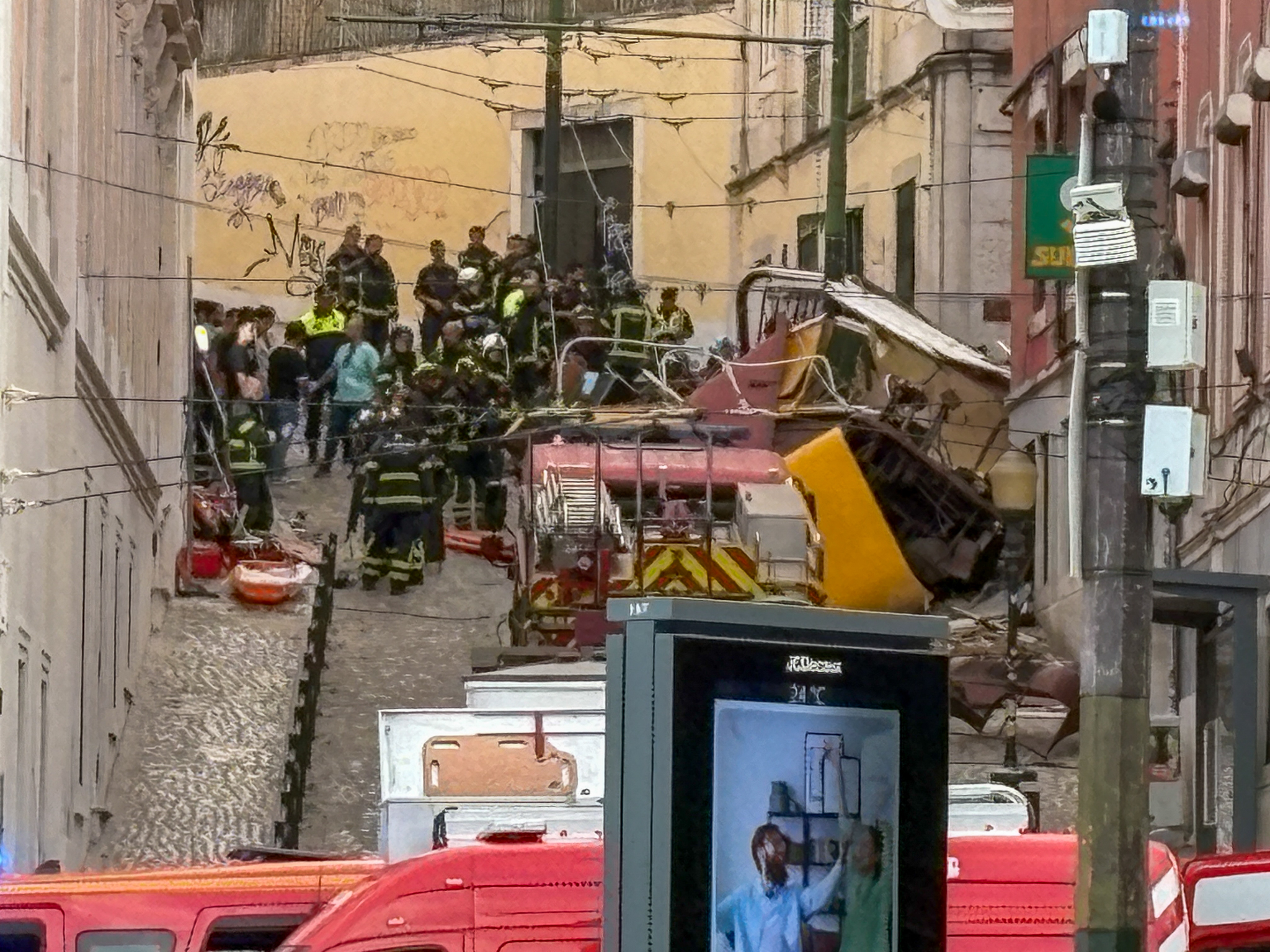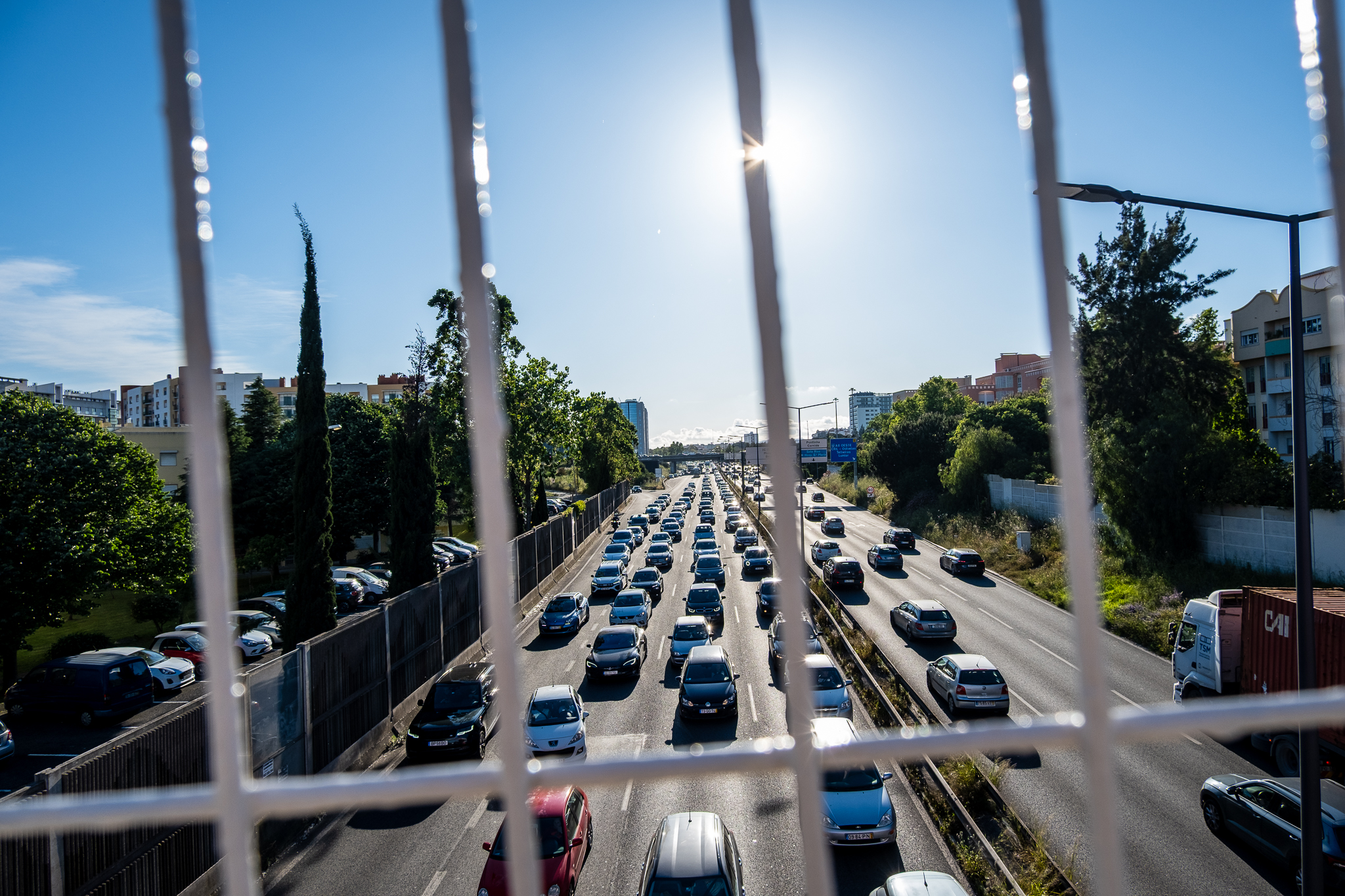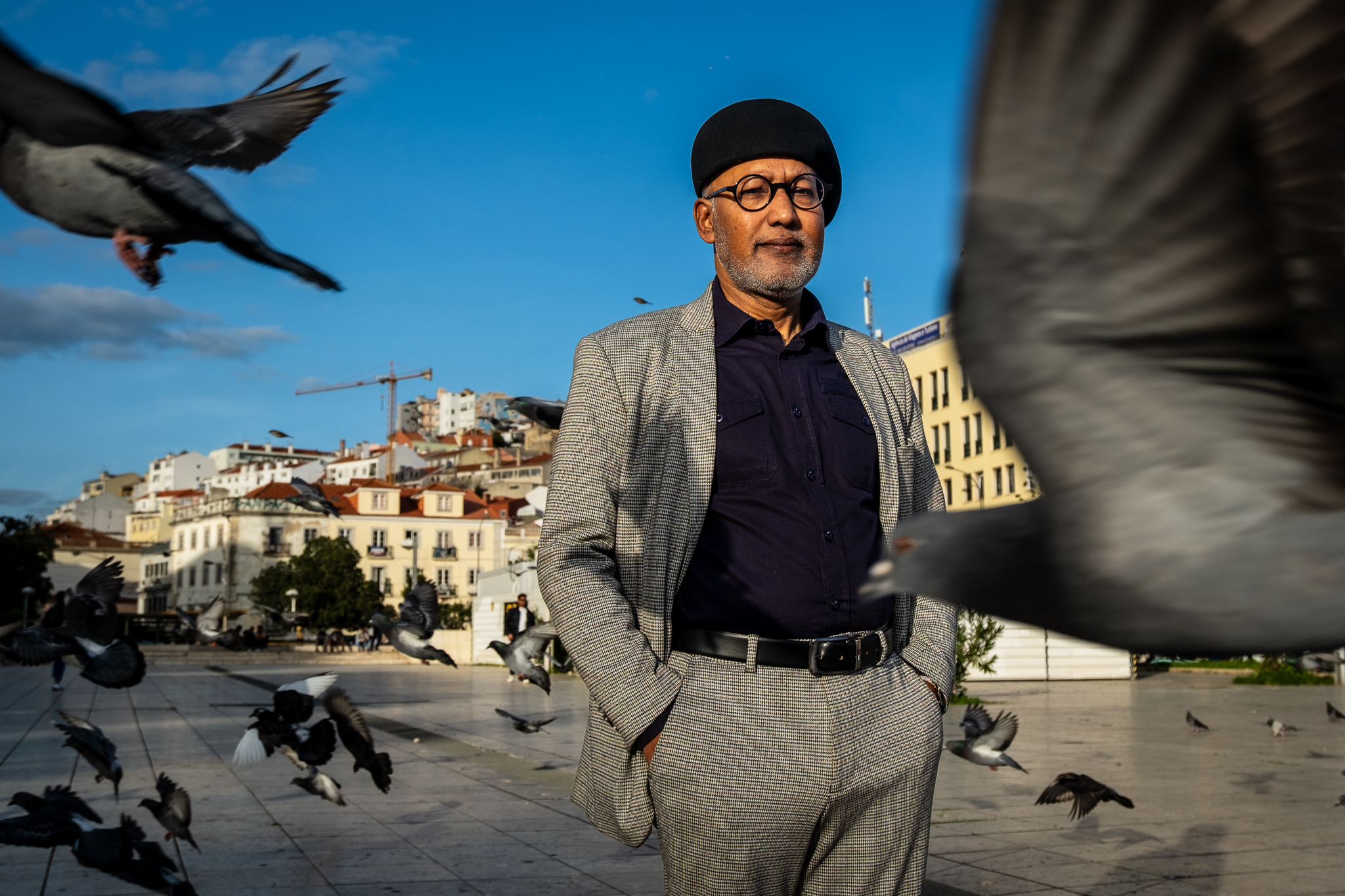Opinion.
If, on the one hand, the "One Day on the Bike, Why Not?" initiative was a success in mobilizing 66 companies that organized, involved and mobilized their work teams, with 277 people trying out cycling to work, on the other hand, participation in the editions between 2013 and at least 2015 seems to have...

In 2011, the "Bike to Work" initiative was launched on an experimental basis by Lisboa E-Nova - Lisbon Energy and Environment Agencywith the aim of raising awareness among Lisbon City Council employees for the need to reduce the environmental impacts of car-centered mobility and to promote the bicycle as a healthier alternative with fewer negative impacts on the environment. The challenge was to get the capital's city hall employees to try cycling to work for a day, on European Car Free Day, which is part of European Mobility Week (EMW). To encourage more participation, a competition was organized with gifts and a prize for participants. The "Bicycle to Work" initiative was an unprecedented awareness-raising action in Portugal to date, which aroused the interest of the press and various companies and institutions, and marked another small step towards legitimizing the bicycle as a viable mode of mobility.
The following year, the initiative was reformulated to include wider participation, open to companies, institutions and educational establishments based in the municipality of Lisbon. Due to growing interest, in subsequent years, the initiative was opened up to entities based outside the municipality of Lisbonhowever, without being able to take part in the competition. The interest was such that 48 organizations took part in 2012, rising to 88 in 2013, stabilizing at 84 in 2014, 90 in 2015, and 68 in 2016, the last edition until the resumption this year.

With a new name, "A Day of Pedaling, Why Not?", the initiative was revived and expanded in 2022 to include entities based in the municipality of Amadora, as this municipality is also one of Lisboa E-Nova's members. In this edition, 66 organizations took part, five of which were from Amadora. A follow-up survey will be sent to all participants after the prize-giving ceremony, which will take place this Friday, September 30, to try to promote more frequent use of bicycles for work and school, to be developed within the dynamics of the company, educational establishment or organization that took part.
Despite the fact that "Bike to Work" day took a break between 2016 and 2022, in 2017 the Lisbon Metropolitan Area (AML) still participated in the initiative European Cycling Challenge (ECC2017), where several European cities competed for the most kilometers traveled by bicycle during the month of May that year. Each city corresponded to a team, which in turn was made up of sub-teams, which in the case of AML corresponded to the 18 municipalities. In the municipality of Lisbon, it was the City Council and Lisboa E-Nova that promoted this initiative, with members of Lisboa E-Nova participating and handing out ECC2017 leaflets to participants in a "Lisboa/Oeiras Mega-Critical Mass", which took place during the same month of May 2017. Lisbon was the sub-team with the most kilometers covered in the AML team, and AML came first among the three Portuguese participants and 28th out of 52 participating cities.
After this five-year break, in 2022 Lisboa E-Nova decided to resume the "One Day on Wheels, Why Not?" initiative and to associate the use of bicycles with the city's sustainability and decarbonization objectives, namely the Business Mobility Pact, signed by 122 organizationsand Green Commitment, signed by 260 organizations of Lisbon. Although this initiative was well attended in 2022, the number of participants this year was lower than in most previous editions, as well as the number of signatories to the Business Mobility Pact or the Green Commitment, which demonstrates the need to better integrate the bicycle as an important part of the mobility system and the city's and companies' sustainability policies. As well as the need to pursue this type of action with greater intensity and link it to the city's decarbonization commitments by 2030.



On the other hand, it is confirmed that there is more participation in the initiative by companies located in the more central areas of the city and in places well served by cycling infrastructurewith connected bike lanes, calmed streets and the shared public bicycle system (GIRAs) than in less prepared and/or more peripheral locations.
Between 2013 and 2016, before the bike lane on Lisbon's central axis or the GIRAs existed, the greater adherence to the initiative could be associated with other variables that deserve further reflection. The integration of the bicycle into the city's mobility strategies and decarbonization commitments by the various economic and social actors may not be showing through on a social level, in addition to the various factors that compromise people's mobility choices in their day-to-day lives. There are, for example, many areas of the city that are not well served by cycling infrastructure or that don't have traffic-calmed streets. Outside the municipality of Lisbon, the scenario is even more complicated, with a landscape dominated by road constructions designed to move more cars at high speeds and many of the hubs of social and economic activity linked almost exclusively by these. Taking into account this reality, which is still very car-focused, the questions that arise, and which deserve a broader reflection, are the following:
Does the bicycle not yet have the status to be considered a legitimate and viable mobility solution in Lisbon's urban mobility system? And if not, why is it not taken seriously in the wider social context?

Some figures may help to clarify the evolution of the bicycle's status as a fully-fledged solution in the mobility system, and while the figures are not directly related to initiatives such as "One Day to Cycle, Why Not?" which seek to help validate the bicycle, the statistics show a very significant growth in cycling infrastructure and the use of this mode since the first edition in 2011. It should be remembered that the city's first 3.4 km of cycle paths were inaugurated in September 2001, the week before European Car Free Day, and in 2010 the municipality of Lisbon still only had 31.5 km of loose cycle paths, mostly running through green and leisure spaces. The AML municipalities, like today, were even more underdeveloped in this area. It is not surprising that in 2011 only 1,818 residents in the whole of the AML used bicycles as their main means of commuting, according to the censuses of that year (INE, 2011).
Given that the use of bicycles was residual, the novelty of the subject aroused the interest of the media. Not only was "Cycling to Work" an unprecedented initiative in Portugal, but the (re)appearance of the bicycle in a way that was associated with everyday life, with work, was unusual in a city that is very car-focused, also aroused a certain surprise.
By comparison, in 2017 Lisbon already had 90.5 km of cycle paths, the GIRA shared public bikes were implemented from November of that year, and the mobility survey, carried out at that time in the country's two major metropolitan areas, already pointed to 26,187 journeys/day in the AML using the bicycle as the main means of transport. At that time, the municipality of Lisbon had 5,486 trips/day using the bicycle as the main means of transportation, still behind the 5,741 of Cascais, which occupied first place in the AML (INE, 2018).
By 2021, Lisbon's cycling network had expanded to 162 km connecting various areas of the city, GIRA already had 91 stations installed and hundreds of bicycles in operation (CML, 2021), and private bike-sharing operators appeared 'dockless' (in September 2022 there were three operating in various parts of the city), all contributing to a greater supply of bicycles.




Another equally useful indicator for comparing the intensity of bicycle use are the counts carried out by the 34 cycle traffic sensors located on various roads in the municipality of Lisbon, and which on the day of the initiative (September 16) recorded 26,656 passages. While it is true that not all of these journeys were commuter journeys, and that it is estimated that 35% of this traffic were scooters, it is also true that these sensors offer a good picture of the intensity of cycling traffic on the roads where they are installed, even though they do not cover all the cycling traffic in the city, let alone in the AML.
With the data from these sensors, it is possible to understand the evolution of bicycle use in the city over time, The Avenida Almirante Reis cycle path currently has the most cycle traffic, surpassing, for example, the weekly average of the Avenida da República and Avenida Duque d'Ávila cycle paths. during the week leading up to "A Day of Cycling, Why Not?".

This apparent (re)normalization of the bicycle in some parts of the city may partly explain the lack of media attention given to the subject, but it does not explain the dissociation of the bicycle from sustainability pacts or urban policies for decarbonizing the city. Nor does it explain why more companies and organizations didn't take part, as they could have won interesting prizes for some of their employees while carrying out an action that is a 'first'.baby step' in the mitigation of the sector that emits more greenhouse gases (GHG)It also causes more inhalable pollutants into the atmosphere and more noise in the city.
If, on the one hand, the "One Day on the Bike, Why Not?" initiative was a success in mobilizing 66 companies that organized, involved and mobilized their work teams, with 277 people trying out cycling to work, on the other hand, participation in the editions between 2013 and at least 2015 seems to have been much higher, which leaves us with a great challenge for the city and for the next edition of "A Day on the Rails, Why Not?" in 2023..

Perhaps the specific circumstances of the 2022 edition, such as the heavy rain at the beginning of the week, the late start to the school year and the busy month of returning to work, help to explain the low turnout of schools, the consequent lack of mobilization of the respective school populations and the difficulty that companies and organizations found in organizing and mobilizing themselves to participate. On the other hand, it would be important for the business community to consider the bicycle as an important part of the sustainable mobility strategies to be adopted, and on its own or in conjunction with shared mobility systems, public transport and walking, it is much more effective than the electric car. But even so, some large companies have managed to mobilize a considerable number of people. However, despite the strong growth in the use of bicycles in Lisbon, this mode of transport is still unusual for a large part of the AML population, requiring a change in mobility habits, which is not always easy to achieve.
Nevertheless, the accession of 66 organizations points to a a fresh start to put the bicycle on the institutional agenda of these entities, legitimize it as a mode of transport and get more people to try it out. Since the re-emergence of the bicycle and its use in everyday mobility is an evolutionary process, the next edition of "One Day on the Bike, Why Not?" will make it possible to compare and better understand the scope of this initiative among the city's business, institutional and educational spheres, as well as to follow up on the implementation of more concrete measures to promote the bicycle through participating companies, institutions and educational establishments.
Bernardo Campos Pereira is a specialist in the field of Sustainable Mobility at Lisboa E-Nova - Lisbon Energy and Environment Agency since July 2022. Architect from the University of Waterloo School of Architecture (Waterloo, Ontario, Canada), PhD student with thesis submitted, awaiting defense, at the University of Aveiro in Public Policies in the Department of Social, Political and Territorial Sciences (DCSPT) and Visiting Scholar (2019) under the Sustainable Urban Mobility (SUM) program at the Eindhoven University of Technology (TU/e, Eindhoven, Netherlands). He has experience in architecture, public space and sustainable mobility projects, with particular emphasis on the implementation of cycling networks and integration of modes, in various municipalities and localities, including Lisbon. He has also worked with companies in the mobility and transport sector, and is a member of the jury for the sustainable mobility indicator in the ECO XXI Municipalities Green Flag program run by the European Blue Flag Association (ABAE).










